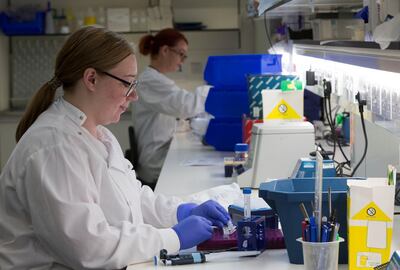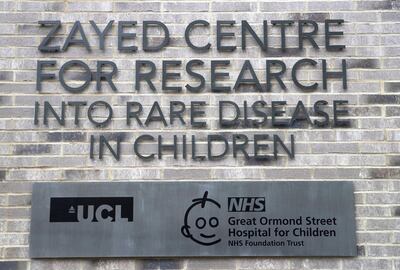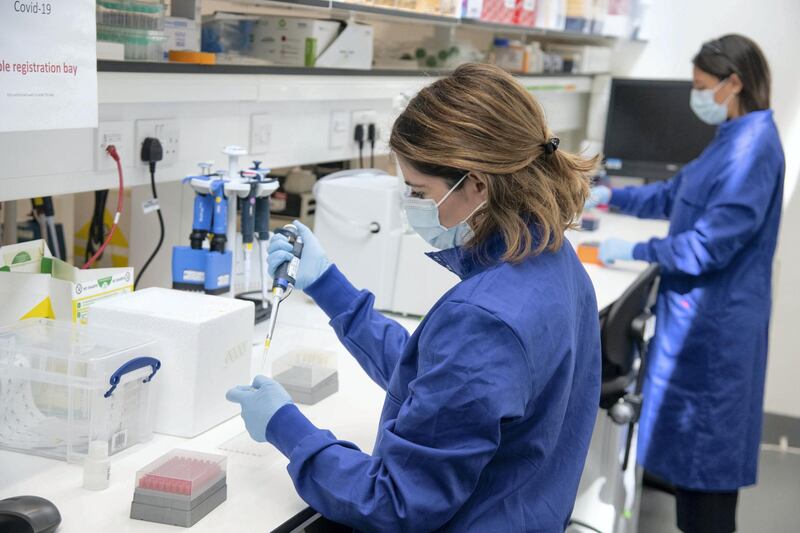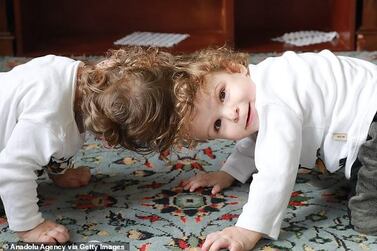A promising gene therapy that could treat a rare and deadly genetic disorder in young people is to be manufactured for clinical trial at the UAE-funded Zayed Centre for Research into Rare Disease in Children in London.
Sanfilippo syndrome type A stops the body from properly breaking down complex sugar molecules, with most patients dying by early adulthood.
The gene therapy aims to replace a “faulty” section of DNA with a healthy one.
A clinical trial is currently underway between the University of Manchester and Royal Manchester Children’s Hospital (RMCH) to establish whether the gene therapy could slow or prevent the progression the disease.
The trial aims to treat three to five patients under two years old and follow them over three years, with the first child having received the trial therapy in early 2020.
It is part of decades of work from experts at various Manchester-based institutions and London’s Great Ormond Street Hospital (Gosh).
The Zayed Centre is a partnership between Gosh, University College London and Gosh Children’s Charity.
Professor Adrian Thrasher of Gosh said gene therapy is promising approach.
“We’re very lucky at Gosh to have a brand-new facility in the Zayed Centre for Research, where we’ll be able to modify the DNA inside patient cells and prepare gene therapies that can be given back to patients for therapeutic benefit,” he said.
Professor Brian Bigger of the University of Manchester, an expert in cell and gene therapy, said: “Sanfilippo is an appalling disease which causes misery to these children - so the prospect of a treatment is tantalising – especially when it was thought for years that no treatment would be possible.
“Our early results are promising and provide some hope for these children, whose condition was previously thought to be incurable. The trial is the critical next stage, but it’s true to say we are excited.”

Professor Rob Wynn of RMCH said scientists had been trialling gene therapies to treat the disease for three decades.
“This advance builds on that clinical experience and those ideas. We hope and expect that this gene therapy approach will make our treatments safer, more effective and, of course most importantly, will lead to better lives for our patients,” he said.
It’s not the first time the Zayed Centre has played an important role in UK health care. Earlier this year it supported the fight against the coronavirus and helped test staff and patients at Gosh.

Opened in July 2019, the centre £60 million (Dh275m) donation from Sheikha Fatima bint Mubarak, often referred to as the Mother of the Nation, was the catalyst for the centre’s creation.








